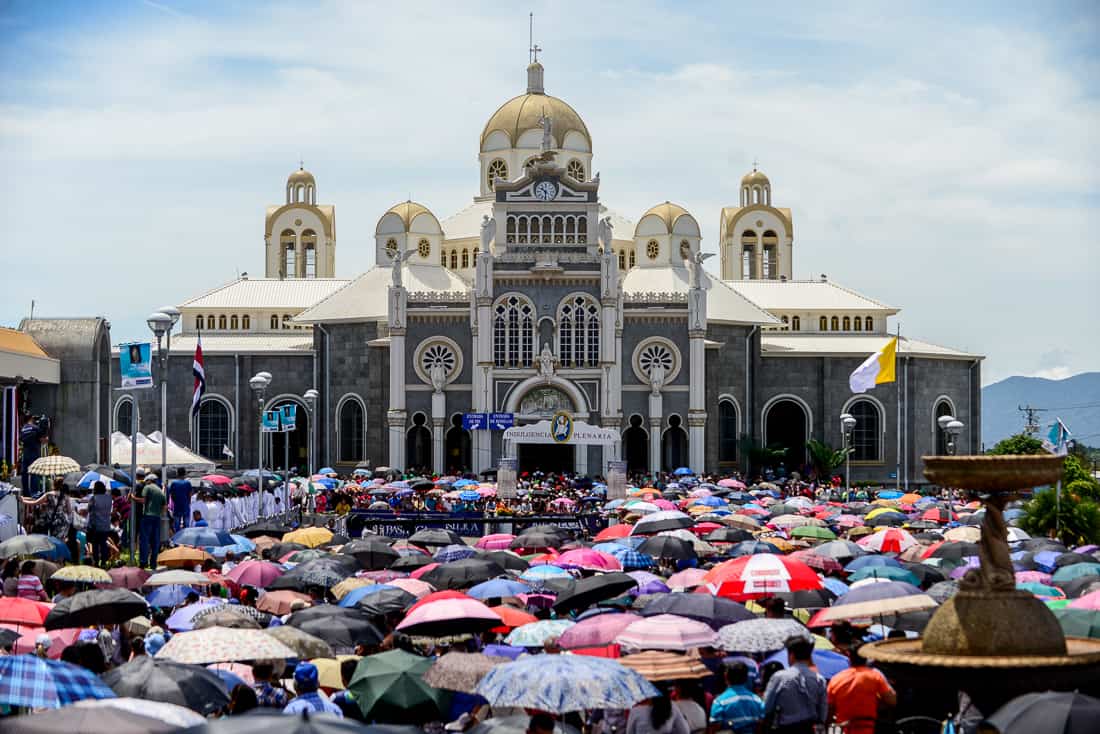Cartago takes you to the heart of what Costa Rica once was, a place of the day’s past. It is a city of history and culture, destruction yet strength bounded by outstanding scenic beauty.
If you want to know Costa Rica, then you will want to appreciate Cartago.
History of Cartago
The picturesque city of Cartago was once the capital of Costa Rica before San Jose’s urban jungle officially took the title. Spanish settlers established themselves in the area with their sights set on agricultural prosperity, the cooler climate and rich volcanic soils looked promising. Thus, leading Cartago to be founded in 1563 by Spanish conquistador Juan Vazquez de Coronado.
As Costa Rica’s independence arrived in 1821 the battle for a new capital would evolve and a civil war would ensue. Coming to a head just outside of Cartago in 1823 the Battle of Ochomongo took place, leading Cartago’s forces to face defeat and the loss of the country’s capital namesake.
The capital was almost conquered again in 1910 but this time by one of the country’s most destructive earthquakes, damaging most of the city and taking the lives of more than 1,000 people. The center of the city, Plaza Mayor, contains the ruins of the Santiago Apostle Parish. Here you can find the unfinished structures of the churches that were never completely rebuilt.
The 16th-century church first faced an earthquake’s destruction in 1630 being destroyed and then demolished. Reconstruction and rebuilding occurred through the years creating the parish. After the fourth earthquake’s power and destruction in 1910 all attempts were finally ended on rebuilding the churches.
However, what now lies are the ruins and remnants within the beauty of a park, a stunning and remarkable contrast to see and alongside a fabled legend.
It is said that all this is because of a curse from two brothers that were early inhabitants of the area. One brother was a friendly man, well-liked in the village, the other a priest. What came between them was a love, a woman that they both fell in love with, tearing them apart after she chose the popular and well-liked man.
However, the love did not end in a happily ever after tale but in death. The priest would not have it and killed his brother. As an act of repentance, he built a church that was destroyed by an earthquake only a year later. Even after attempting to rebuild, another earthquake would destroy any efforts, and many see the earthquakes of Cartago as a curse of what he had done.
Not far from Cartago lays another place of legends and tales, however, this one takes a bit of a different twist, that of the Sanatorio Durán said to be one of the most haunted places in the country. Founded in the early 1900s originally it was a place of treatment for tuberculous and recuperation.
The location was a safe distance for those to quarantine away from others. With its natural landscape and setting some were welcomed to help treat mental conditions in hopes, residents would reap all the healthy benefits of the surroundings. About 300 beds were available in the specialized hospital to help treat those that were ill.
Through time it evolved to an orphanage and even a prison closing in the 1960s becoming abandoned. Now it hosts a new kind of life as an attraction for inquisitive visitors to tour and explore if they feel brave enough. With the cooler temperatures, nestled between the mountainous hills as the mist rolls through it does create a haunting image as one’s imagination can only run wild.
Iconic Places
One of the most iconic places in Costa Rica and religious sites is here in the colonial capital at Basilica de Nuestra Senora de Los Angeles. This important and significant catholic church contains the statue of La Negrita (Black Madonna). Its legend goes back to 1635 when a woman came across the black rock.
It appeared to have a doll-like shape with an image of a woman holding a baby in her arms. She brought it back home with her but it mysteriously found its way back to where she found it. After several tries, it somehow ended back where she had discovered it even after taking it to the local priest.
It is now seen as a sacred relic and the statue is believed to have great significance, some attributing its power to miraculous healings. It is at this church of Basilica de Nuestra Senora de Los Angeles, Basilica of Our Lady of the Angels that thousands to millions make their annual pilgrimage.
Known as la romeria they walk this route as an act of faith. Many come from Costa Rica and all over the world to ask for healing and blessings. Some simply come out of respect to the Virgin of Los Ángeles or in thanks for a miracle or blessing that they have received. The famous church is a sight to see whether you are partaking in the annual pilgrimage or just visiting to admire its presence and grandeur.
Final Thoughts
This historic city is only 45 minutes east of San Jose and found at the base of the Irazu Volcano laying in the shadow of the highest volcano in Costa Rica. Visiting Cartago is a walk-through Costa Rica’s history stepping back in time, learning of its colonial origins.
It embodies all that the country is with cultural traditions and religious importance exploring its refreshing landscape. Cartago is surrounded by mountains and rolling hills, a wonderous volcano, coffee plantations, cultural traditions mixed with a bit of mystery and folklore.
It is a place that is overlooked at times, many not realizing how much it truly has to offer, but once you visit you surely will never forget.






